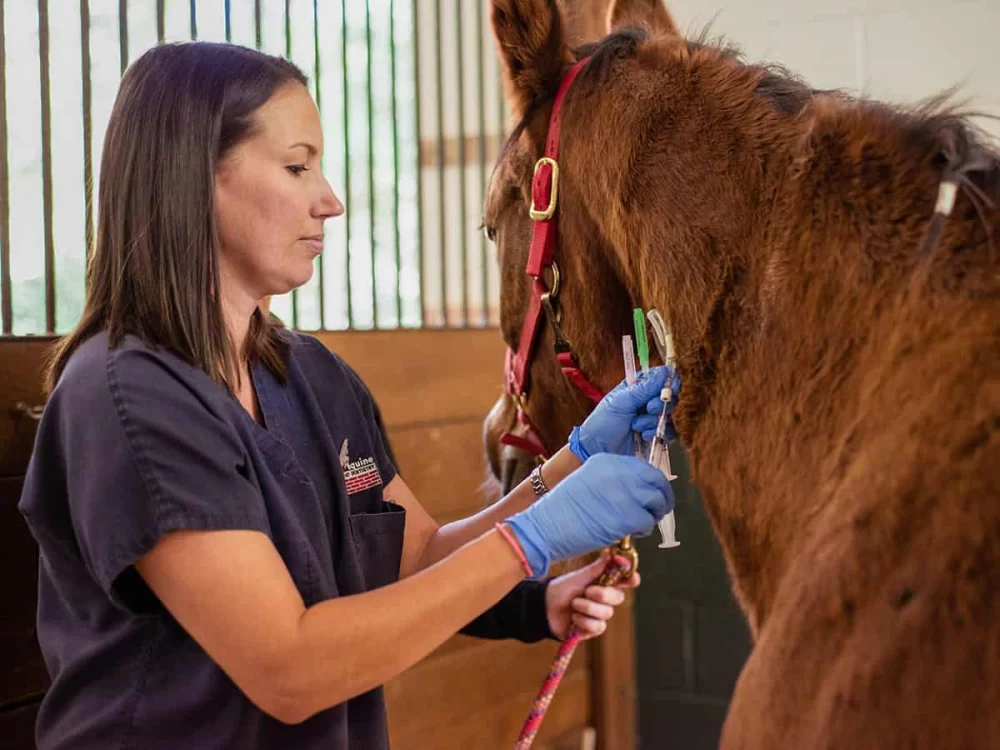How to Build a Rewarding Career as an Equine Veterinarian
- why-choose-to-become-an-equine-veterinarian
- what-education-you-need-to-become-an-equine-vet
- gaining-real-world-experience
- day-to-day-life-of-an-equine-vet
- personal-journey-real-case-study
- is-this-the-right-career-for-you
1. Why Choose to Become an Equine Veterinarian
If you’ve always felt drawn to horses and have a passion for medicine, learning how to become an equine veterinarian might be your perfect path. Equine vets play a critical role in ensuring the health and welfare of horses, from high-performance racehorses to beloved pasture pets.
More than just a career, it's a lifestyle that blends scientific expertise with deep compassion for animals. It also offers opportunities for outdoor work, travel, and long-term relationships with horse owners and trainers.
2. What Education You Need to Become an Equine Vet
2.1 High School and Pre-Vet Foundation
The journey begins early. Strong performance in science subjects—biology, chemistry, physics—is essential. Volunteering at animal shelters, barns, or shadowing vets during your teenage years builds a solid foundation and shows early commitment.
2.2 Undergraduate Degree
Most veterinary schools require a bachelor's degree with coursework in animal sciences, organic chemistry, and anatomy. Some universities offer pre-veterinary tracks that tailor your courses toward eventual acceptance into veterinary programs.
2.3 Veterinary School and Specialization
Veterinary school typically takes four years. While all students graduate as Doctors of Veterinary Medicine (DVM), those focused on horses may seek electives in equine internal medicine, surgery, and reproduction. Internships and externships at equine clinics are crucial to building hands-on experience.
3. Gaining Real-World Experience
3.1 Internships and Mentorships
After vet school, aspiring equine vets often pursue internships at equine hospitals or racetracks. These intensive year-long placements expose you to emergencies, surgeries, and specialized care. Mentorship from seasoned equine veterinarians can shape your career in lasting ways.
3.2 Licensing and Continuing Education
Passing the North American Veterinary Licensing Examination (NAVLE) is mandatory. Many also choose to pursue board certification through the American Board of Veterinary Practitioners in Equine Practice, though it's not required to practice.
4. Day-to-Day Life of an Equine Vet
Expect to be on your feet—literally and professionally. Equine veterinarians may work on farms, in ambulatory units, or with high-end stables. One moment you’re administering vaccinations to a foal; the next, you're responding to a midnight call for a colic emergency.
It's a demanding job that rewards stamina, empathy, and adaptability. Despite the physical effort, many equine vets find immense satisfaction in making a tangible difference in an animal’s life and building trust with their human caretakers.
5. Personal Journey: Real Case Study
Dr. Sarah Peterson, a California-based equine vet, recalls: “I grew up barrel racing in junior rodeo and wanted a career where I could stay close to horses. After vet school at UC Davis and an internship in Kentucky, I’ve spent the last decade treating performance horses. It’s not always glamorous, but it’s deeply fulfilling.”
Stories like Sarah’s show that knowing how to become an equine veterinarian is just the first step—what makes the journey meaningful is the love of the work, the bond with the animals, and the impact you create in the equine world.
6. Is This the Right Career for You?
6.1 Evaluate Your Lifestyle Expectations
Being an equine vet is not your typical 9-to-5 job. If you enjoy variety, unpredictable days, and hands-on problem-solving, it might be perfect. But it’s also important to weigh the challenges—student debt, long hours, and emotional toll can be real.
6.2 Where to Start Today
If you’re serious about this path, start by exploring programs, volunteering with large animals, and connecting with professionals in the field. Invest in quality resources—books, gear, and prep materials—that support your goals.
Looking to take the next step? Whether you're searching for vet school prep tools, specialized gear for barn visits, or personalized guidance, UAK Travel has carefully curated recommendations to support future equine veterinarians like you. Let your passion lead your career—start building it now.












